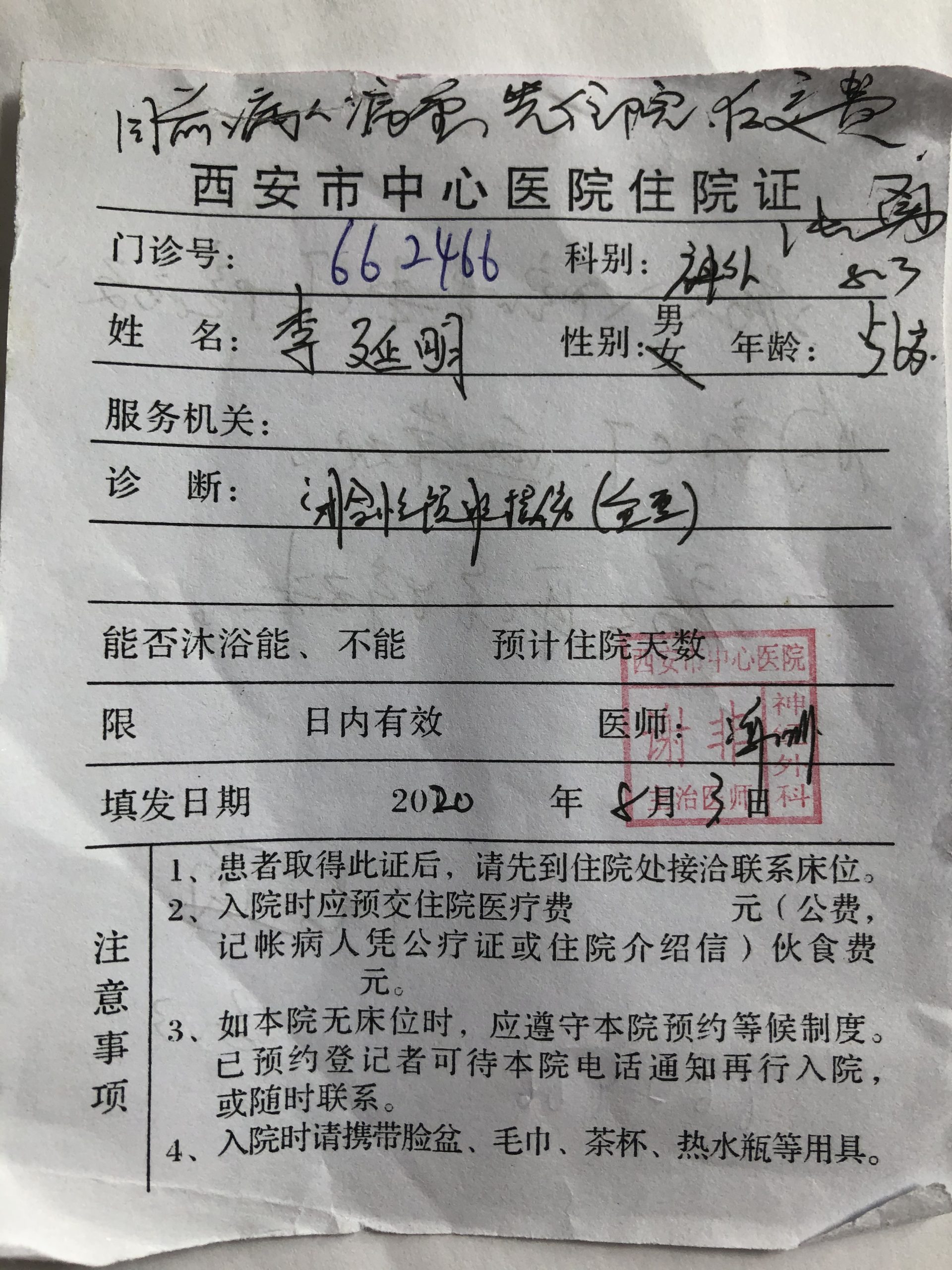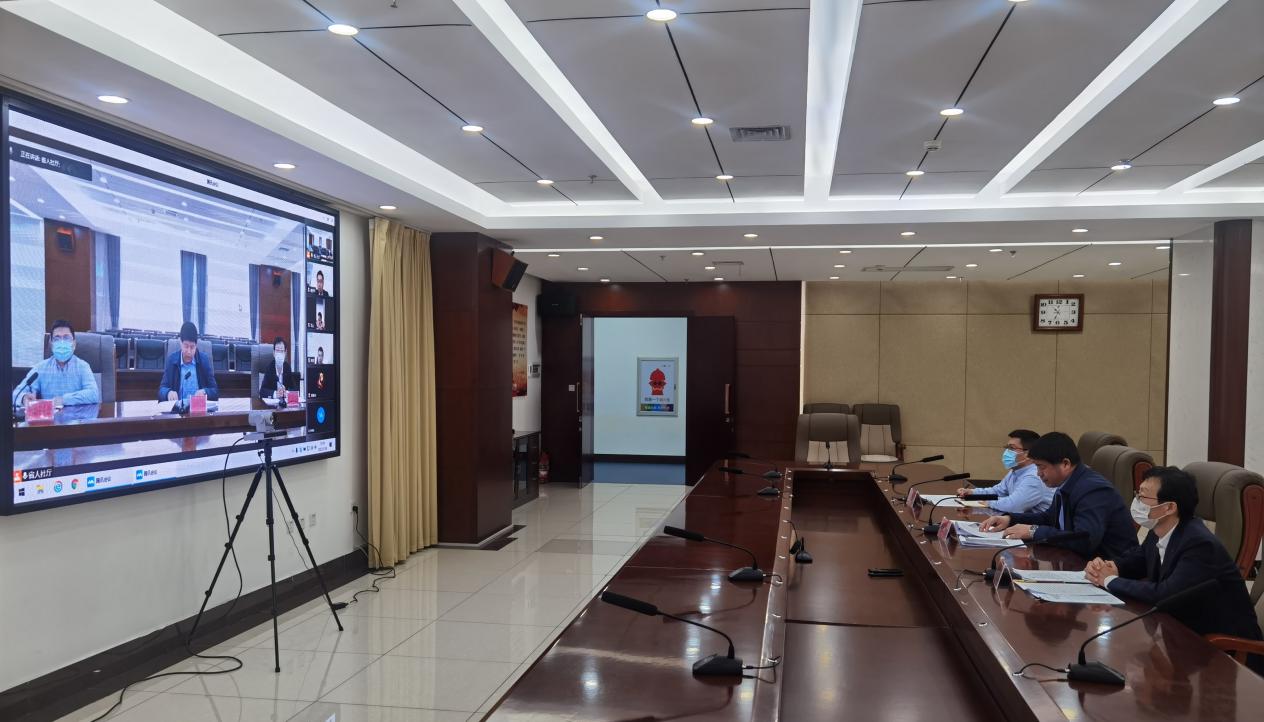Public interaction
Explanation of public consultation
In order to cooperate with the implementation of the Civil Code, on the basis of clearing up the relevant judicial interpretations such as the Supreme People’s Court’s Interpretation on Several Issues Concerning the Application of the Guarantee Law of People’s Republic of China (PRC), and combining with the trial practice, our hospital formulated the Interpretation of the Supreme People’s Court on the Application of the Guarantee Part of the Civil Code of People’s Republic of China (PRC) (draft for comments). In order to ensure the scientific nature of judicial interpretation, we are now open to the whole society for comments. The feedback date is November 27, 2020, and the feedback email address is:zgmetsyd@163.com
The Supreme People’s Court min er ting
November 9, 2020
The Supreme People’s Court about
Interpretation of the application of the guarantee part of People’s Republic of China (PRC) Civil Code
(Draft for Comment)
In order to correctly hear cases of guarantee disputes, this interpretation is formulated in accordance with the relevant laws and regulations such as the Civil Code of People’s Republic of China (PRC) and the Civil Procedure Law of People’s Republic of China (PRC), and combined with civil trial practice.
I. About General Provisions
Article 1 [Scope of Application]Disputes arising from mortgage, pledge, lien, guarantee, etc. shall be governed by this interpretation. This interpretation shall apply to disputes arising from other contracts with guarantee functions, such as ownership reservation, financial leasing, factoring, etc., unless it is not applicable according to its nature.
This interpretation shall apply to the counter-guarantee provided by the debtor or a third party.
Article 2 [Dependence of Effectiveness of Guarantee Contract]If the parties agree that the principal creditor’s rights and debts contract is not established, invalid, revoked or determined to be ineffective, and the guarantor should still bear the guarantee liability, the agreement is invalid.
Disputes arising from independent letter of guarantee issued by banks or non-bank financial institutions shall be governed by the Provisions of the Supreme People’s Court on Several Issues Concerning the Trial of Independent Letter of Guarantee Disputes. After the independent letter of guarantee issued by other entities other than banks or non-bank financial institutions is deemed invalid, if the creditor expresses that the guarantor and the principal debtor are jointly and severally liable, the people’s court shall support it.
Article 3 [Dependence of Guarantee Scope]The scope of the guarantee liability agreed by the parties is greater than the scope of the debtor’s liability, and the people’s court shall support the guarantor’s claim to assume the guarantee liability only within the scope of the debtor’s liability. If the parties agree on the terms of liquidated damages for the performance of the guarantee liability, and the guarantor claims that the agreement is invalid, the people’s court shall support it.
When the guarantor performs the guarantee responsibility by himself, the actual amount of repayment is greater than the scope of the debtor’s responsibility. When the guarantor exercises the right of recourse, the debtor claims to bear the responsibility only within the scope of its responsibility, and the people’s court shall support it.
Article 4 [Entrusted Holding of Security Interests]Under any of the following circumstances, if the parties register the validly established security interest in the name of a third party, the debtor fails to perform the due debt or the creditor claims to be paid in priority for the property, the people’s court shall support it according to law:
(1) When issuing bonds, register the security interest provided for bondholders in the name of the bond trustee;
(two) in the entrusted loan contract, the security interest provided to the creditor shall be registered in the name of the trustee;
(3) Other circumstances in which the guarantor knows that the security interest is not registered in the creditor’s name.
Article 5 [Effectiveness of Guarantees Provided by Schools and Kindergartens]Non-profit schools, kindergartens, medical institutions, etc. for the purpose of public welfare shall not be guarantors, and the guarantee provided by them shall be invalid, except in one of the following circumstances:
(a) for the purchase of educational facilities, medical and health facilities and other public facilities, the ownership retention, financial leasing and other security interests with security functions set with the public facilities as the subject matter;
(2) The property other than educational facilities, medical and health facilities and other public welfare facilities is set as the security interest for its own debts;
(3) Pledge of one’s own debts with the right to pledge.
The people’s court shall not support the guarantee provided by private schools, kindergartens and medical institutions registered as profit-making legal persons if the parties claim that the guarantee is invalid.
Article 6 [The ultra vires guarantee is effective when the counterpart is in good faith]The people’s court shall support the legal representative of the company who, without the company’s resolution procedure, exceeds his authority to conclude a guarantee contract with the counterpart on behalf of the company, and the bona fide counterpart requests the company to assume the guarantee responsibility.
The goodwill mentioned in the preceding paragraph means that the counterpart does not know or should not know that the legal representative has entered into a guarantee contract beyond his authority. The people’s court will not support the company’s claim that the other party is not in good faith on the grounds that the resolution of the organ is forged or altered by the legal representative, the resolution procedure is illegal, the signature is false, and the amount of guarantee exceeds the legal limit, unless the company has evidence to prove that the other party knows that the resolution is forged or altered.
Article 7 [Exceptions without Agency Resolution]In any of the following circumstances, the people’s court shall support the company’s claim to assume the guarantee liability even if the counterpart knows or should know that there is no company resolution:
(a) the company is a guarantee company whose main business is to provide guarantees for others, or a bank or non-bank financial institution that conducts letter of guarantee business;
(2) The company provides guarantee to the counterpart for the business activities of the company directly or indirectly controlled by it;
(3) The guarantee contract is signed and agreed by shareholders who individually or jointly hold more than two-thirds of the company’s voting rights on the guarantee matters.
Article 8 [Civil liability for ultra vires guarantee when the counterpart is not in good faith]If the legal representative enters into a guarantee contract on behalf of the company beyond his authority, and the non-bona fide counterpart requests the company at fault to bear civil liability, it shall be handled in accordance with the relevant provisions in the first and second paragraphs of Article 17 of these Provisions. After the company assumes the responsibility, the people’s court shall support it if it requests the legal representative to assume the liability for compensation.
Article 9 [Resolution Procedure for Debt Joining the Quasi-applicable Guarantee]The legal representative joins the debt in the name of the company in accordance with the provisions of Article 552 of the Civil Code, and the effect of this agreement shall be handled with reference to the relevant rules of this interpretation on the company providing guarantee for others.
Article 10 [Guarantee Provided by Listed Companies]If the legal representative of a listed company exceeds his authority to conclude a guarantee contract on behalf of the company, and the other party fails to review the information publicly disclosed by the listed company about the guarantee matters, such as the resolutions of the board of directors or the resolutions of the shareholders’ meeting, and requests the listed company to bear civil liability, the people’s court will not support it.
Article 11 [Effectiveness of Guarantee Provided by One-Man Company for its Shareholders]After providing a guarantee for its shareholders, a one-person limited liability company claims not to assume the guarantee responsibility on the grounds of violating the relevant provisions of the law on the company’s external guarantee, and the people’s court will not support it.
If a one-person limited liability company is unable to pay off other debts due to its guarantee liability, and other creditors request that the shareholders bear joint and several liabilities, the people’s court shall support it. The people’s court will not support the shareholder’s defense on the grounds that one-person limited liability company has an independent legal person status or the shareholder only bears limited liability.
Article 12 [Effectiveness of Guarantee Provided by Branches of the Company]The people’s court shall not support the company’s branches in providing external guarantees in their own names without the company’s resolution procedure, unless the other party is in good faith.
If a branch of a financial institution issues a letter of guarantee within the business scope recorded in its business license, or is authorized by a superior institution that has the right to engage in guarantee business, the people’s court will not support it if the financial institution or its branch claims that it will not bear the guarantee responsibility on the grounds of not being authorized in writing or not making a resolution according to law; Where a branch of a financial institution provides a guarantee other than the letter of guarantee business, the provisions of the preceding paragraph shall apply.
Article 13 [Joint Guarantee]If there are more than two guarantees for the same debt, and the guarantors make an agreement on the responsibility sharing after assuming the guarantee responsibility, and the guarantor who has assumed the responsibility requests other guarantors to share the losses that cannot be recovered from the debtor according to this agreement, the people’s court shall support it.
There is no agreement between the guarantors on the responsibility sharing after assuming the guarantee responsibility, but it constitutes a joint guarantee. If the guarantors who assume the guarantee responsibility request other guarantors to share the losses that cannot be recovered from the debtor in accordance with the provisions of Article 519 of the Civil Code, the people’s court shall support it. If several guarantors sign, seal or fingerprint the same contract, they may be deemed as joint and several guarantees.
Where there is no agreement between the guarantors on the responsibility sharing after assuming the guarantee responsibility, and it does not constitute joint and several guarantees, and the guarantor who has assumed the guarantee responsibility requests other guarantors to share the losses that cannot be recovered from the debtor, the people’s court will not support it.
Article 14 [Assigned Creditor’s Rights by Guarantor]There are more than two guarantees for the same debt, and after the guarantor receives the creditor’s rights, he requests the other guarantors to assume the guarantee responsibility. If the other guarantors claim to be exempted from the guarantee responsibility within the scope of the creditor’s rights, the people’s court shall support them in accordance with the provisions of Article 700 of the Civil Code, on the grounds that the behavior belongs to the guarantee responsibility.
After the guarantor receives the creditor’s rights, he requests the debtor to take responsibility according to the original creditor’s rights and debts. If the debtor claims to take responsibility only within the scope where the guarantor receives the creditor’s rights according to the provisions of Article 700 of the Civil Code, the people’s court shall support it.
Where the controlling shareholder, actual controller and the company directly or indirectly controlled by the guarantor request the guarantor or the debtor to bear the liability after the creditor’s rights are transferred or the guarantor’s close relatives transfer the creditor’s rights, the relevant provisions in the preceding two paragraphs shall apply mutatis mutandis.
Article 15 [Maximum Guarantee]The maximum amount of creditor’s rights in the maximum guarantee refers to all creditor’s rights, including the principal creditor’s rights and their interest, liquidated damages, damages, expenses for keeping the secured property and realizing the security right, unless otherwise agreed by the parties. If the registered maximum amount of creditor’s rights is inconsistent with the maximum amount of creditor’s rights agreed by the parties, and other creditors of the guarantor claim to determine the priority scope of compensation according to the registered maximum amount of creditor’s rights, the people’s court shall support it.
Article 16 [Borrowing the New and Returning the Old]If the parties to the main contract agree to repay the old loan with the new loan, and the new loan and the old loan are guaranteed by the same guarantor, and the creditor requests the guarantor of the new loan to continue to bear the guarantee responsibility, the people’s court shall support it according to law; If the new loan and the old loan are guarantees provided by different guarantors, or the old loan is unsecured and the new loan is secured, and the creditor requests the guarantor of the new loan to bear civil liability, the people’s court will not support it, except that the creditor has evidence to prove that the guarantor knows or should know that the creditor and the debtor have agreed to repay the old loan with the new loan.
If the parties to the main contract agree to repay the old loan with the new loan, and the creditor claims to exercise the security interest on the new loan on the grounds that the security interest on the old loan has not been cancelled, the people’s court will not support it, except that the parties agree to continue to provide guarantee for the new loan.
The guarantor of the agreed object of the parties continues to provide guarantee for the new loan, but before concluding a new loan contract, the guarantor sets a security interest for other creditors, and if other creditors claim that their security interest takes precedence over the new loan creditor, the people’s court will not support it. [Another opinion] The people’s court should support it.
Article 17 [Legal Consequences of Invalid Guarantee Contract]If the main contract is valid and the guarantee contract is not established, invalid, revoked or determined to be ineffective, it shall be determined whether and how the guarantor shall be liable for compensation according to different situations:
(1) If both the creditor and the guarantor are at fault, the guarantor shall bear no more than one-half of the unpaid part of the debtor;
(2) If the guarantor is at fault and the creditor is not at fault, the guarantor shall be liable for the part that the debtor cannot pay off;
(3) If the creditor is at fault and the guarantor is not at fault, the guarantor shall not be liable for compensation.
If the main contract is invalid and the guarantee contract is invalid, the guarantor shall not be liable for compensation without fault; If the guarantor is at fault, his liability for compensation shall not exceed one-third of the unpaid part of the debtor.
If the suretyship contract concluded between the creditor and a person who is not a guarantor according to the law or judicial interpretation is deemed invalid, and the creditor requests the guarantor to bear the liability for compensation, the people’s court will not support it.
Article 18 [Right of recourse against the debtor]The people’s court shall support the guarantor who has assumed the responsibility of guarantee or compensation to recover from the debtor. The people’s court shall support the debtor’s own guarantee of things and the guarantor who has assumed the responsibility of guarantee or compensation who claims to exercise the creditor’s right to guarantee the debtor within the scope of his responsibility.
Article 19 [Liability of Counter Guarantor]If the guarantee contract is invalid and the guarantor who has assumed the liability for compensation requests the counter-guarantor to assume the liability within the scope of his liability for compensation according to the stipulations of the counter-guarantee contract, the people’s court shall support it according to law.
If the counter-guarantee contract is invalid, it shall be handled in accordance with the relevant provisions of Article 17 of this Interpretation.
Article 20 [Reference Application of Guarantor’s Rights Protection Rules]The people’s court shall support the claim of a third party who provides a material guarantee for another person’s debts by referring to the relevant rules for the protection of the guarantor’s rights such as Articles 695, 700, 701 and 702 of the Civil Code.
Article 21 [Method of Dispute Resolution and Determination of Jurisdiction Court]Creditors sue the debtor and the guarantor at the same time. Both the principal creditor’s rights and debt contract and the guarantee contract stipulate the dispute settlement method or the competent court. If the agreement is inconsistent, the competent or competent matters shall be determined according to the agreement in the principal creditor’s rights and debt contract. If there is no agreement on the dispute settlement method or the competent court or only the guarantee contract, the competent court shall be determined according to the relationship between the principal creditor’s rights and debts.
In general guarantee, the creditor applies for adding the debtor as a co-defendant after suing the guarantor, and if the debtor raises jurisdiction objection, the court of jurisdiction shall be determined according to the relationship between the principal creditor’s rights and debts.
In the joint and several liability guarantee, the creditor only sues the guarantor, and if the dispute settlement method or the court of jurisdiction is stipulated in the guarantee contract, the competent or jurisdictional matters shall be determined according to this agreement; If there is no agreement on the dispute settlement method or the competent court, the competent court shall be determined according to the guarantee contract relationship.
Article 22 [Connection between Bankruptcy Procedure and Guarantee Liability]When the people’s court accepts the debtor’s bankruptcy case, if the creditor requests the guarantor to assume the guarantee responsibility for the unpaid part in the bankruptcy procedure, it shall do so within six months after the bankruptcy procedure ends.
If the people’s court accepts the debtor’s bankruptcy case, and the creditor files a lawsuit in the people’s court after declaring the creditor’s rights in the bankruptcy procedure, and requests the guarantor to assume the guarantee responsibility, the people’s court may directly judge the guarantor to assume the guarantee responsibility, but it should be clear in the judgment that the guarantor has the right to be compensated in the bankruptcy procedure instead of the creditor. The people’s court shall not support the guarantor’s claim for compensation from the debtor after reconciliation or reorganization after assuming the guarantee responsibility.
Article 23 [Consequences of the Guarantor’s Failure to Exercise the Right of Recovery in advance due to the Creditor]If the creditor knows or should know that the debtor is bankrupt, and neither declares the creditor’s rights nor notifies the guarantor, so that the guarantor cannot exercise the right of recourse in advance, the guarantor shall be exempted from the guarantee liability to the extent that the creditor’s rights may be compensated in the bankruptcy proceedings.
After the people’s court accepts the debtor’s bankruptcy case, if the creditor fails to declare his creditor’s rights, the guarantor jointly guaranteed shall declare his creditor’s rights as a subject and exercise the right of recourse in advance.
Article 24 [Interest on secured debt stops when the debtor goes bankrupt]After the people’s court accepts the debtor’s bankruptcy case, the creditor requests the guarantor to assume the guarantee responsibility, and if the guarantor claims that the guarantee responsibility will stop bearing interest from the date when the people’s court accepts the bankruptcy application, the people’s court shall support it.
Second, about the guarantee contract
Article 25 [Parties to General Guarantee]In general guarantee, the people’s court shall accept the lawsuit brought by the creditor with the debtor and the guarantor as co-defendants, but it should be clear in the judgment that the guarantor shall only assume the guarantee responsibility for the part of the debtor’s property that cannot be performed after being enforced according to law; Where the creditor applies for the preservation of the property of the general guarantor, the people’s court shall not support it, except that the evidence proves the existence of the circumstances stipulated in the second paragraph of Article 687 of the Civil Code.
In general guarantee, if the creditor only sues the guarantor, the people’s court may explain it to him and inform him to add the debtor as a co-defendant; If the creditor refuses to add, it may dismiss its lawsuit, except as otherwise provided by laws and judicial interpretations.
Article 26 [Warranty Period of General Warranty]The creditor of general guarantee only sues the guarantor, and it is explained that when applying for adding the debtor as a co-defendant, if the guarantor claims not to bear the guarantee liability after the expiration of the guarantee period, the people’s court shall support it.
The creditor of general guarantee has not brought a lawsuit or applied for arbitration against the debtor within the guarantee period. Even if there is evidence to prove that he has claimed the right to the guarantor, the people’s court shall support the guarantor’s claim that he will not assume the guarantee responsibility after the guarantee period expires.
Article 27 [Limitation of Action for General Guarantee]If the debtor has no property to execute after the creditor of general guarantee brings a lawsuit against the debtor or applies for arbitration within the guarantee period, and the people’s court makes an order to terminate the execution within six months from the date of receiving the application for execution, the limitation of action for the secured debt shall be calculated from the date when the order takes effect; If the people’s court fails to make a ruling within six months from the date of receiving the application for execution, the limitation of action for secured debts shall be counted from the date of expiration of six months from the date of receiving the application for execution.
Article 28 [Joint Guarantee and its Guarantee Period]There are more than two guarantees for the same debt, and the guarantors constitute joint and several guarantees. When the creditor claims rights from the guarantors according to law during the guarantee period, the guarantors can prove that the creditor failed to claim rights from other guarantors according to law during the guarantee period, resulting in its inability to exercise the right of recourse, and accordingly claim to be exempted from the guarantee liability within the scope of its inability to exercise the right of recourse, the people’s court shall support it.
If there are more than two guarantees for the same debt, and the guarantors do not constitute joint and several guarantees, the people’s court will not support the creditor’s claim that the effect of the act is extended to other guarantors on the grounds that he has claimed rights from one guarantor according to law within the guarantee period.
For the same debt, there are both general guarantee and joint and several liability guarantee, and the people’s court will not support it if the guarantor of the general guarantee claims to bear the guarantee responsibility only for the part that the joint and several liability guarantor cannot pay off.
Article 29 [Guarantee Period of Maximum Guarantee]In the maximum amount guarantee contract, the guarantee period is calculated separately for the guaranteed debts one by one, unless otherwise agreed by the parties on the calculation method and starting date of the guarantee period.
Article 30 [Does Withdrawal of Lawsuit Affect Warranty Period]If the creditor of general guarantee brings a lawsuit or applies for arbitration against the debtor within the guarantee period and then withdraws the lawsuit or arbitration application, it will not affect the guarantee period.
If the creditor of the joint and several liability guarantee has filed a lawsuit or applied for arbitration against the guarantor within the guarantee period, and then withdrew the lawsuit or arbitration application, and a copy of the indictment or arbitration application has been served on the guarantor, the people’s court shall hold that the creditor has claimed the rights from the guarantor within the guarantee period.
Article 31 [Guarantee Period when Guarantee Contract is Invalid]If the suretyship contract is invalid, cancelled or determined to be ineffective, the creditor fails to exercise his rights according to law within the suretyship period, and the guarantor claims not to be liable for compensation, the people’s court shall support it.
Article 32 [Active Review during Warranty Period]The people’s court shall examine the fact that the guarantee period has expired ex officio when trying the relevant dispute cases involving the guarantee contract.
Article 33 [Providing guarantee for debts beyond the limitation of action]If the guarantor voluntarily assumes the guarantee liability after the expiration of the limitation of action for the principal debt, and later claims not to assume the guarantee liability on the grounds of the expiration of the limitation of action, the people’s court will not support it; The people’s court shall not support the guarantor’s claim against the debtor after assuming the guarantee responsibility for the debt whose limitation of action has expired.
After the expiration of the limitation of action for the principal debt, the people’s court shall not support the request of the guarantor who provides another guarantee to cancel the guarantee contract or confirm that the guarantee contract is invalid, except that he can prove that the guarantee contract is revocable or invalid.
Article 34 [Identification of Guarantee Types]If a third party provides a similar commitment document such as margin replenishment and liquidity support as a credit enhancement measure, if it means to provide a guarantee, and the creditor requests the third party to assume the guarantee responsibility, the people’s court shall handle it in accordance with the relevant provisions of the guarantee, but the provisions of the guarantee period shall not apply.
The people’s court shall examine whether the third party has the intention to share the debt with the debtor when determining whether the third party constitutes the debt as stipulated in Article 552 of the Civil Code. The third party’s expression of will can’t be determined as debt joining. If there is an expression of will to provide guarantee, it shall be deemed as guarantee.
Article 35 [Guarantee Insurance]Disputes arising from the guarantee insurance shall be governed by the provisions of the Insurance Law.
The people’s court shall support the insurer’s claim for compensation from the debtor within the scope of compensation after it has compensated the insured in accordance with the guarantee insurance contract. The people’s court shall support the insurer’s request that the debtor calculate the loss of insurance premium occupation according to the quoted interest rate of one-year loan market at the time of insurance premium payment. If the insurer requests the debtor to pay liquidated damages and other expenses as agreed, the people’s court will not support it.
Third, about the security interest
(A) the effectiveness of the security contract and the security interest
Article 36 [Validity of Mortgage Contract Without Mortgage Registration]The validity of the guarantee contract shall not be affected if the property whose ownership is unknown or controversial, the property sealed up or detained, the property within the customs supervision period, etc. is used as a guarantee. If the creditor requests the guarantor to bear the liability for breach of contract within the agreed value range of the secured property due to the failure to register, the people’s court shall support it, but it shall not exceed the liability that the guarantor should bear when the security interest is effectively established.
Article 37 [Indivisible Property]If the principal creditor’s rights have not been fully paid off, and the holder of the security interest claims to exercise the security interest on all the secured property, the people’s court shall support it according to law.
If the secured property is divided or partially transferred, and the obligee for security claims to exercise the mortgage right on the divided or transferred secured property, the people’s court shall support it according to law.
Article 38 [Individuality of Principal Creditor’s Rights]If the principal creditor’s rights are divided or partially transferred, and each creditor claims to exercise the security interest on his share of creditor’s rights, the people’s court shall support it according to law.
If the principal debt is divided or partially transferred, the guarantor still guarantees several debtors to perform their debts with his secured property. However, if a third party provides a guarantee, and the creditor allows the debtor to transfer the debt without the written consent of the guarantor, and the creditor requests the guarantor to assume the guarantee responsibility for the debt transferred without the consent of the guarantor, the people’s court will not support it.
Article 39 [Mortgage and Collateral]Before the mortgage is established, it is an accessory to the mortgaged property. If the mortgagee claims that the mortgage is effective and is an accessory, the people’s court shall support it, unless otherwise agreed by the parties or the mortgaged property and the accessory are owned by two or more people respectively.
After the mortgage is established, it is an accessory to the mortgaged property. If the mortgagee claims that the mortgage is effective and is an accessory, the people’s court will not support it, but it can be disposed of together when the mortgage is realized.
Article 40 [Mortgages and Attachments]After the mortgage is established, the mortgaged property is attached, mixed or processed, and the mortgagor has the ownership of the attached property, mixture or processed product. If the mortgagee claims that the mortgage is effective to the attached property, mixture or processed product, the people’s court shall support it according to law.
If the third party’s attachment, mixing or processing of the mortgaged property makes the mortgagor and the third party co-owners of the attachment, mixture or processed product, and the mortgagee claims that the effectiveness of the mortgage is limited to the mortgagor’s share of the co-ownership, the people’s court shall support it. If the third party’s attachment, mixing or processing of the mortgaged property leads to the decrease in the value of the mortgaged property, and the mortgagee claims priority compensation for the third party’s share of the common property within the range of the decrease in the value of the mortgaged property, the people’s court shall support it.
Article 41 [Property Subrogation Effect of Mortgage]After the establishment of the mortgage right according to law, the mortgaged property is damaged, lost or expropriated, and the mortgagee requests the obligor to be compensated in priority for insurance, compensation or compensation according to the original mortgage right, and the people’s court shall support it.
If the obligor for payment has already paid the mortgagor insurance money, compensation money or compensation money, and the mortgagee requests the obligor for payment of insurance money, compensation money or compensation money, the people’s court will not support it, except that the obligor for payment still pays the mortgagor after the mortgagee notifies the obligor for payment in writing.
Article 42 [Transfer of Mortgaged Property]If the mortgagee claims that the mortgage property transfer contract is invalid on the grounds that the mortgage contract prohibits or restricts the transfer of the mortgaged property, the people’s court will not support it. The agreement prohibiting or restricting the transfer of the mortgaged property has been registered. If the mortgagor transfers the mortgaged property and the mortgagee requests to cancel the contract, the people’s court shall support it.
Under any of the following circumstances, the people’s court shall support the mortgagee’s request that the transfer of mortgaged property may damage his mortgage right and the mortgagor use the proceeds from the transfer to pay off debts in advance or deposit them:
(a) the mortgage contract prohibits or restricts the transfer of mortgaged property;
(2) If the mortgaged property is a commercial house, the transferee is the commercial house consumer whose rights have priority over the mortgagee according to law;
(3) Other circumstances in which the transfer of mortgaged property may damage the mortgage right.
Article 43 [Legal Consequences of Expiration of Limitation of Action for Principal Creditor’s Rights]After the limitation of action for principal creditor’s rights expires, if the mortgagee requests to exercise the mortgage right, the people’s court will not support it; The people’s court shall support the mortgagor’s request for cancellation of mortgage registration after the expiration of the limitation of action for principal creditor’s rights. If the creditor claims the debtor’s rights within the limitation period, and fails to apply to the people’s court for enforcement within the statutory period after winning the judgment, and then requests to exercise the mortgage right, the people’s court will not support it.
The provisions of the preceding paragraph shall apply to the pledge of rights with registration as the publicity method.
After the limitation of action for principal creditor’s rights expires, the people’s court shall support the pledgor and debtor’s request for the return of pledged property or retained property if the debtor fails to perform his obligations. [Another view] The people’s court does not support it.
Article 44 [Procedures for Realizing Security Interests] If the parties agree that when the debtor fails to perform the due debt or the situation of realizing the security interest agreed by the parties occurs, the security interest holder can discount the secured property or auction or sell it by himself and get priority compensation for the proceeds, the agreement is valid. If the mortgagee is unable to discount, auction or sell the secured property by himself due to the guarantor, and the mortgagee requests the guarantor to bear the increased expenses, the people’s court shall support it.
If the parties apply for auction or sale of the secured property in accordance with the provisions of the Civil Procedure Law on "cases of realizing security interests", the respondent claims to reject the application on the grounds that the arbitration clause in the guarantee contract is stipulated, and the dispute is settled through arbitration. After hearing the case, the people’s court shall handle it according to the following circumstances:
(1) If the parties have no substantive dispute over the real right for security and the conditions for realizing the real right for security have been achieved, they shall make an order to allow the auction or sale of the secured property;
(2) If the parties have some substantive disputes over the realization of the security interest, they may rule that the auction or sale of the secured property is allowed for the undisputed part, and inform them that they can apply for arbitration for the disputed part;
(3) If the parties have substantive disputes over the realization of the security interest, they shall rule to reject the application and inform them that they can apply for arbitration on the disputed part.
Where a creditor claims to exercise a security interest by way of litigation, the debtor and the guarantor shall be co-defendants.
(2) Mortgage of real estate
Article 45 [Validity of Real Estate Mortgage Contract]The people’s court shall support the creditor’s request to the mortgagor to go through the mortgage registration formalities after the real estate mortgage contract comes into effect; If the mortgage registration cannot be handled due to the loss of the mortgaged property or the transfer of the mortgaged property, and the creditor requests the mortgagor to bear the liability for breach of contract within the agreed value of the mortgaged property, the people’s court shall support it, but it shall not exceed the liability that the mortgagor should bear when the mortgage can be effectively established.
Article 46 [Effectiveness of Real Estate Register]The records made in the real estate register on the mortgaged property and the secured creditor’s rights are inconsistent with those stipulated in the mortgage contract. If the parties claim that the contents recorded in the register shall prevail, the people’s court shall support them.
Article 47 [Consequences of Failure to register due to reasons of the registration department]When a party applies for the registration of mortgaged property, it is unable to register the mortgaged property due to the fault of the registration department, and if the party requests the registration authority to bear the liability for compensation according to law, the people’s court shall support it.
Article 48 [Illegal Building Mortgage]The mortgage contract shall be invalid if the building confirmed as illegal or illegal by legal procedures is mortgaged. The legal consequences of the invalidity of the mortgage contract shall be handled in accordance with the provisions of the first and second paragraphs of Article 17 of this Interpretation.
Article 49 [Mortgage of Allocated Land Use Rights]The people’s court shall not support the mortgagor’s claim that the mortgage contract is invalid or ineffective on the grounds that it has not been approved by the people’s government with the right of approval. The people’s court shall support the creditor’s request that the mortgagor bear the liability for breach of contract because the failure to register the mortgage has caused losses to the creditor.
The people’s court shall not support the mortgagor’s mortgage on the house allocated with the right to use the construction land, and the parties request to confirm that the mortgage contract is invalid on the grounds that the allocated land use right cannot be mortgaged. When the mortgage is realized, the proceeds from the auction and sale of the house shall be used in priority to pay the transfer fee for the right to use the construction land.
Article 50 [Integral Mortgage of Premises]The people’s court shall support the claim of the creditor that the mortgage is valid only for the right to use the construction land, and that the creditor claims the validity of the mortgage on the existing buildings and the completed parts of the buildings under construction. The people’s court does not support the creditor’s claim that the validity of the mortgage extends to the continued part of the building under construction and the new building.
If the mortgagor mortgages the right to use the construction land and the buildings on it or the buildings under construction to different creditors respectively, the people’s court shall determine the order of mortgage according to the order of registration.
Article 51 [Mortgage Advance Notice Registration]After the parties set up mortgage with pre-purchased commercial housing and registered the mortgage advance notice, the creditor requests to exercise the mortgage right, and if the first registration has been registered after examination, it shall be deemed that the mortgage right has been established since the date of registering the advance notice; If the first registration has not been made, the claim shall be rejected, but the effectiveness of the mortgage notice registration shall not be affected.
If the mortgaged property is auctioned or sold by the people’s court, the people’s court shall support it if the right holder of advance notice registration claims priority in compensation for the mortgaged property and has gone through the first registration after examination; If the first registration has not been made, the application shall be rejected, but the obligee of advance notice registration shall be informed that he can claim the right to exercise the mortgage from the transferee from the date of the first registration.
If the mortgagor is declared bankrupt by the people’s court within the validity period of the advance notice registration after the parties concerned handle the advance notice registration, and the right holder of the advance notice registration claims priority in repayment of the mortgaged property, the people’s court shall support it.
(3) Movable property and security of rights
Article 52 [General Description of Guaranteed Property]The parties make a general description of the secured property in the chattel guarantee contract. If the relevant description is enough to reasonably identify the secured property, the guarantee contract shall be deemed to be established.
The description of the guaranteed property in the chattel guarantee contract does not meet the reasonable identification standard, and it is still impossible to distinguish the property from the other properties of the guarantor after correction. If the guarantor claims that the guarantee contract is not established, the people’s court shall support it.
Article 53 [Effectiveness of Unregistered Chattel Mortgage Contract]If the mortgagor transfers, leases or transfers the mortgaged property after the chattel mortgage contract is signed, the people’s court will not support it, unless the mortgagee can prove that the transferee or lessee is malicious.
If the mortgagor’s other creditors apply to the people’s court for the preservation or enforcement of the mortgaged property after the signing of the chattel mortgage contract, and the mortgagee claims that the chattel has priority in compensation, the people’s court will not support it.
If the mortgagor fails to register the mortgage after the signing of the chattel mortgage contract, and the creditor claims that the chattel should be paid first, the people’s court will not support it.
Article 54 [Pledge of Property under the Supervision of a Third Party]The creditor, the pledgor and the supervisor conclude a tripartite agreement, and the pledgor guarantees the creditor’s rights with goods within a certain period of time or a certain value. If the parties have evidence to prove that the supervisor is entrusted by the creditor to supervise and possess the pledged property, the people’s court shall determine that the pledge is established from the day when the supervisor occupies the pledged property. If the supervisor releases goods to the pledgor in violation of the agreement and the pledged property is damaged or lost due to improper storage, and the creditor requests the supervisor to bear the liability for breach of contract, the people’s court shall support it according to law.
The creditor, the pledgor and the supervisor enter into a tripartite agreement, and the pledgor guarantees the creditor’s rights with goods within a certain period of time or value. If the parties have evidence to prove that the supervisor is entrusted by the pledgor to supervise the pledged property, or the pledgor fails to actually perform the supervisory duties despite being entrusted by the creditor, resulting in the pledged property still being under the control of the pledgor, the people’s court shall hold that the pledge right is not established. The creditor may request the pledgee to bear the liability for breach of contract based on the agreement in the pledge contract, but its scope shall not exceed the liability that the pledgee shall bear when the pledge right is effectively established. If the supervisor fails to perform his supervisory duties and the creditor requests the supervisor to bear the liability for breach of contract, the people’s court shall support it according to law.
Article 55 [Price Priority]Enterprises, individual industrial and commercial households, agricultural producers and operators set floating mortgages on their existing and existing production equipment, raw materials, semi-finished products and products, and then purchase movable property by way of ownership retention or financial lease. If the seller or lessor handles the publicity of the movable property retention or financial lease within 10 days after the delivery of the movable property, the people’s court shall support it if it claims that its rights are prior to the floating mortgage according to the provisions of Article 416 of the Civil Code.
Article 56 [Bill of Lading Pledge]In the letter of credit transaction, if the issuing bank holds the bill of lading according to the agreement between it and the applicant, and the issuing bank claims its ownership of the goods under the bill of lading on the grounds of holding the bill of lading, the people’s court will not support it. The people’s court shall support the issuing bank’s claim that the goods under the bill of lading should be paid first.
Article 57 [Pledge of Bills of Exchange]If a bill of exchange is pledged, but the word "pledge" is not recorded in the endorsement, and the pledgee claims that the pledge has been established only on the grounds that the bill has been delivered, the people’s court will not support it.
If a bill of exchange is pledged, although the word "pledge" is recorded in the endorsement, but the bill is not signed, and the pledgee claims that the pledge has been established, the people’s court will not support it.
Article 58 [Warehouse Receipt Pledge]Warehouse receipts must record the items specified in Article 909 of the Civil Code. If a party pledges a warehouse receipt that does not meet the provisions of this article, the people’s court shall deem the pledge of the warehouse receipt invalid.
After the pledgor pledges the warehouse receipt that meets the legal requirements, the pledgee establishes a pledge for other creditors with the stored goods, and the pledgee requests to confirm that the pledge of the stored goods is invalid, and the people’s court shall support it. [Another point of view] We should comprehensively examine whether the pledge is effectively established and the order of establishment to determine the repayment order.
If multiple warehouse receipts have been issued on the same warehouse, and the parties have set up multiple warehouse receipts as pledges, the people’s court shall support the creditor who first obtained the warehouse receipts to claim priority in compensation for the warehouse; If the order of obtaining warehouse receipts cannot be determined, the creditors who have obtained warehouse receipts will be compensated equally according to the proportion of their claims.
Article 59 [Pledge of Accounts Receivable]If the existing accounts receivable are pledged, the pledgee requests the debtors of accounts receivable to perform their debts, and the debtors of accounts receivable claim that they are not liable on the grounds that the accounts receivable do not exist from the beginning, and the creditors cannot prove that the accounts receivable really exist at the time of pledge registration, the people’s court will not support their request for priority compensation for the accounts receivable; If the debtor of accounts receivable claims that the accounts receivable have been eliminated when the pledge registration is handled, but fails to prove it, the people’s court will not support it. If the creditor and debtor of accounts receivable pledge fictitious accounts receivable, and the pledgee requests the debtor of accounts receivable to perform the debt, the people’s court shall support it, unless the pledgee knows the fiction.
If the existing accounts receivable are pledged, the parties concerned fail to notify the debtors of the accounts receivable, and the debtors of the accounts receivable perform their debts to the creditors, and the pledgee requests priority in compensation for the money obtained by the creditors, the people’s court will not support it; The people’s court shall support the pledgee who has notified the debtor of accounts receivable that the debtor of accounts receivable still performs to the creditor, resulting in the extinction of accounts receivable, and requests the creditor and the debtor of accounts receivable to bear joint and several liability for compensation.
Where the charging right of real estate such as highway bridges, highway tunnels or highway ferries is pledged, the parties set up a specific account for the accounts receivable, and the pledgee requests priority compensation for the accounts receivable in the specific account when there is a legal or agreed reason for realizing the pledge right, the people’s court shall support it; The people’s court shall support the pledgee’s request for auction or sale of accounts receivable without setting a specific account.
Article 60 [Lien]If the debtor fails to perform the due debt, the creditor retains the movable property that the debtor has legally possessed, and the actual owner of the movable property requests to return the property, the people’s court will not support it.
IV. Other guarantees with guarantee function
Article 61 [Guarantee without legal registration agency]If the creditor and the guarantor conclude a guarantee contract, and stipulate that the property that is not prohibited or allowed to be pledged by laws and administrative regulations is set as a guarantee by registration as a publicity method, it will not have the effect of real right if it is not registered in the statutory registration agency. The people’s court shall support the request of the parties to pay off the debts by discounting the property or the proceeds from sale or auction as agreed in the guarantee contract.
Article 62 [Financing Lease]If the parties to a financial lease agree that the lease item shall be owned by the lessee after the lease term expires, and the lessee fails to pay the remaining rent after paying part of the rent, and the lessor requests the lessee to pay the remaining rent and give priority to the compensation of the lease item, the people’s court may refer to the procedures for realizing the applicable security interest.
If the parties to a financial lease agree that the lease item shall be owned by the lessee after the lease term expires, and the lessee fails to pay the remaining rent after paying part of the rent, and the lessor requests to terminate the contract and recover the lease item, the people’s court may refer to the procedures for realizing the applicable security interest. If the lessee claims that the value of the leased property recovered exceeds the unpaid rent and other expenses, the people’s court shall determine the value of the leased property in accordance with the provisions of the financial lease contract; If there is no agreement or unclear agreement in the financial lease contract, the value of the lease item can be determined by referring to the depreciation of the lease item agreed in the financial lease contract and the residual value of the lease item after the expiration of the contract.
Article 63 [Retention of Ownership]If the parties agree that the seller shall retain the ownership of the contract property, and the seller files a lawsuit to claim back the property according to Article 642 of the Civil Code, the people’s court shall explain it to him and inform him to claim his rights with reference to the realization procedure of the security right. If the seller refuses, the people’s court shall reject the seller’s claim.
Article 64 [Factoring]Factoring and pledge of accounts receivable exist in the same account receivable at the same time, and the people’s court shall support it if the parties claim to determine the priority by referring to the provisions of Article 768 of the Civil Code.
If the parties agree on the factoring with recourse, the people’s court shall support the factor in bringing a lawsuit with the creditor of accounts receivable and the debtor as co-defendants and requesting joint liability; If the creditor’s rights of accounts receivable obtained by the factor from the debtor of accounts receivable exceed the principal and interest of factoring financing and related expenses, and the creditor of accounts receivable requests the factor to return the excess and its interest, the people’s court shall support it.
Article 65 [Validity of Contract with Guarantee Function]The scope and effectiveness of the bona fide "third party" that the obligee’s rights are not registered for contracts with guarantee functions such as ownership retention, factoring and financial leasing shall be dealt with with with reference to Article 53 of these Provisions.
Article 66 [Guarantee for Formal Transfer of Property to Creditor’s Name]If the debtor or a third party enters into a contract with the creditor on the transfer of property with a repurchase clause, and it is agreed that the property will be formally transferred to the creditor’s name to guarantee the performance of the debt, and the debtor fails to perform the due debt and the property belongs to the creditor, the people’s court shall consider this part of the agreement invalid, but it will not affect the validity of other parts of the contract.
According to the contract agreed in the preceding paragraph, the parties have formally transferred the property to the creditor’s name in the form of publicity of the change of property rights, and the debtor fails to perform the due debts, and the creditor requests to confirm that the property belongs to him, and the people’s court will not support it. If a party requests auction or sale of property, and the proceeds are used to give priority to compensation or pay off debts, the people’s court shall support it.
Article 67 [Guarantee for Formal Transfer of Equity to Creditor’s Name]Shareholders provide guarantee for debt performance by transferring their equity to creditors’ names, and the people’s court does not support the company or its creditors’ request that creditors as nominal shareholders and shareholders bear joint and several liabilities on the grounds that shareholders fail to perform or fully perform their capital contribution obligations or withdraw their capital contribution.
When the people’s court determines whether a transaction is equity transfer or equity transfer to the creditor’s name to provide guarantee for debt performance, it needs to comprehensively examine the following factors:
(a) whether there is a secured principal creditor-debtor relationship;
(2) Whether there is an equity repurchase clause;
(3) Whether the shareholders enjoy and exercise their rights.
Article 68 [Margin]After the debtor or a third party specified his money in the form of special account or security deposit, he handed it over to the creditor for possession as a guarantee for the creditor’s rights. If the debtor fails to perform the debt, the creditor claims that the money should be paid in priority, and the people’s court should support it.
If the debtor or a third party takes a specific account such as its money deposits received account as a guarantee, and the creditor who can actually control the specific account claims that the money in the specific account is given priority, the people’s court shall support it.
If the deposit agreed by the parties does not meet the provisions of the preceding two paragraphs, and the creditor claims priority in payment of the deposit, the people’s court will not support it, but it will not affect the parties’ claim of rights according to the agreement.
V. Supplementary Provisions
Article 69 [Scope of Application]This interpretation shall come into force as of January 1, 2021.
The civil code and this interpretation shall apply to the guarantee behavior that occurs after the implementation of the civil code. The guarantee behavior that occurred before the implementation of the Civil Code shall be governed by the laws and judicial interpretations at that time; If there are no provisions in the laws at that time, the Civil Code and this interpretation can be applied.













